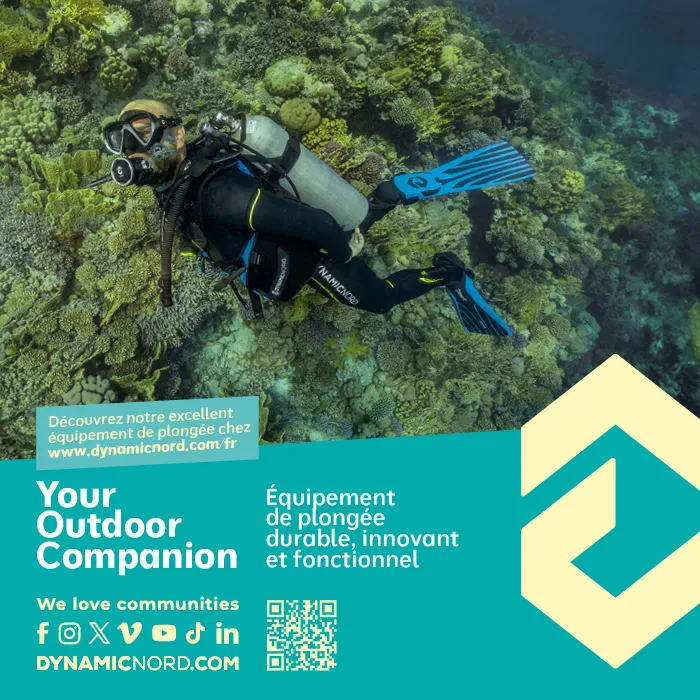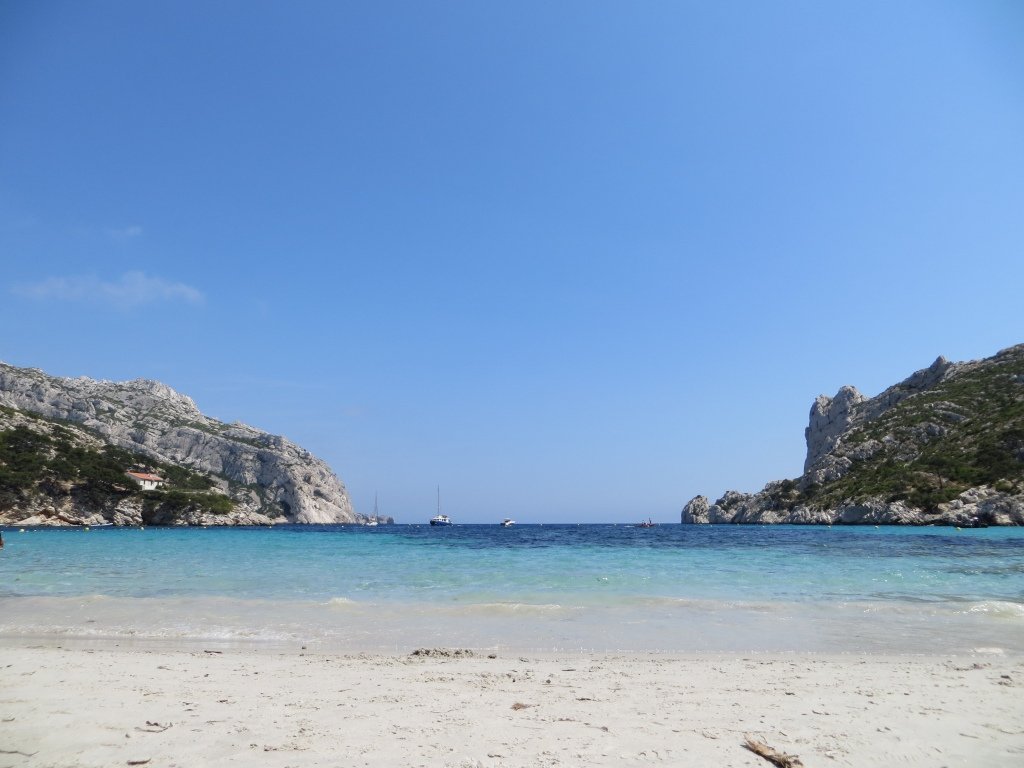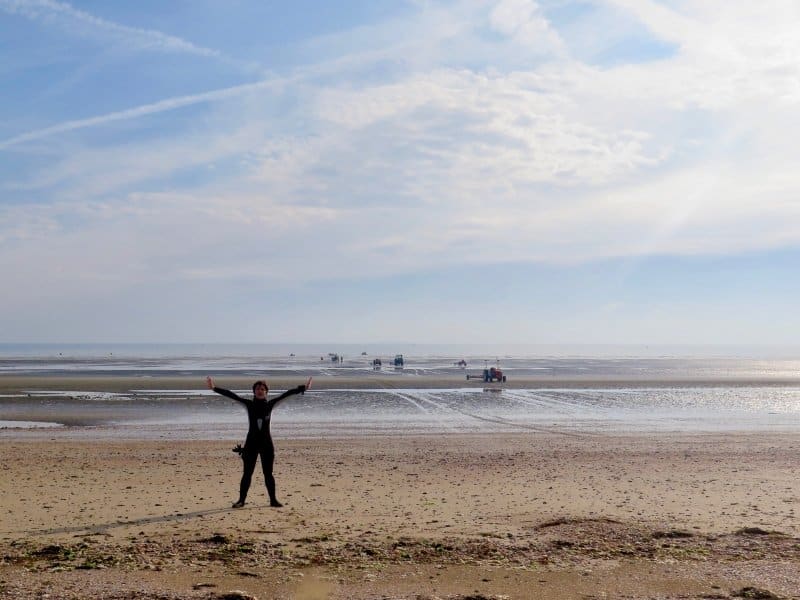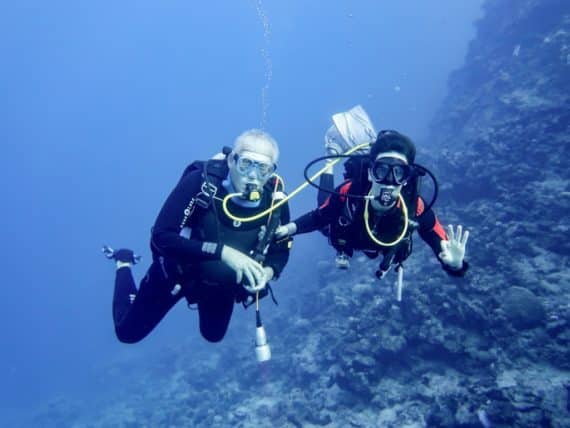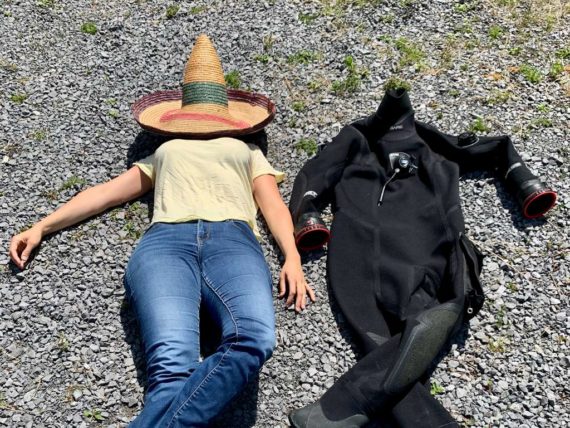Scuba diving : a question of weight
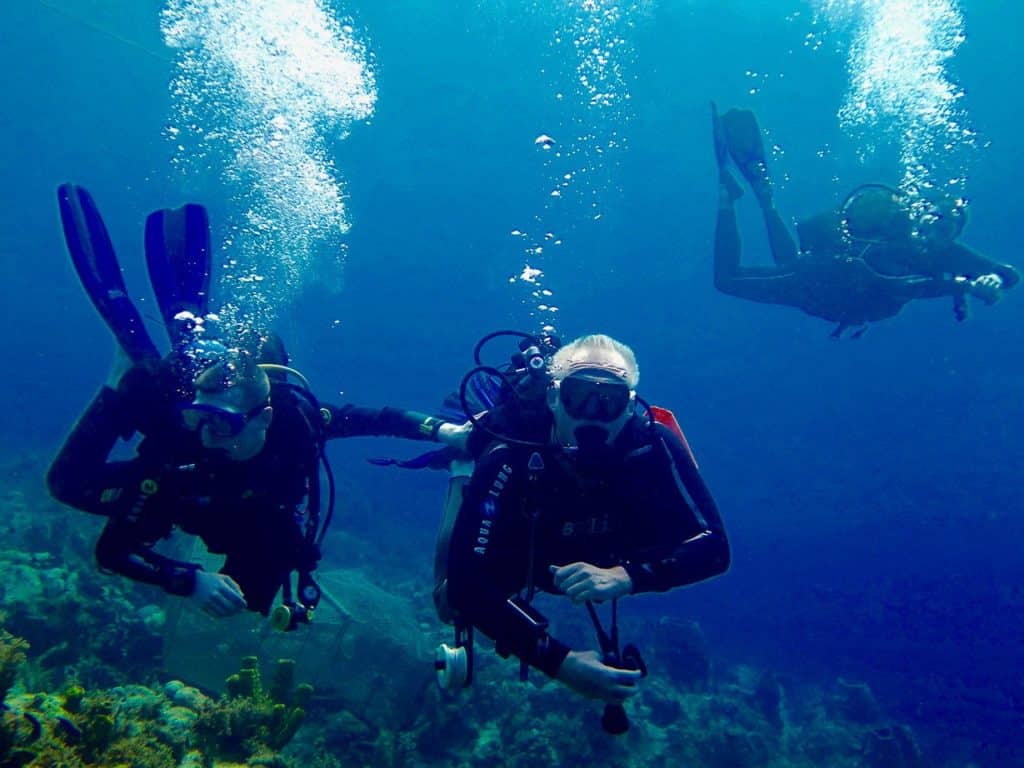
As I was surprised by a diver
Who wanted at all costs to minimize the elements of his equipment and remove weight. I asked him the reason why ?
The answer left me speechless :
To avoid increasing my buoyancy and having to add lead
Of course, I was tempted to say that this answer was neither reasonable nor sensible. It is necessary to use the equipment as it is designed for. And to use what we need to make a comfortable dive.
However, this discussion allowed me to begin a reflection on the phobia of the weight among many divers. Encountered around the world.
Still today, in the world of diving, some of the divers have a visceral fear of being over weighted.
When I started scuba diving, I gradually reduced my weight to the maximum. By removing lead without really asking myself the question of ” why reduce weight ? “
A reason often mentioned to reduce the weight in diving is the risk of shortness of breath when the diver is brought to kick hard. Shortness of breath that can turn out to be dramatic in some cases by quickly turning an incident into an accident.
If indeed, kicking hard when over weighted can increase the effort (one is heavier) and represent a risk of shortness of breath, however we must not neglect the effect of being under weighted.
The lack of weight can also have disadvantages in diving and increase the risks of incidents / accidents.
What are the disadvantages of inadequate weight ?
- Difficulty in maintaining an end-of-dive stop and thus discomfort
- Risk of damaging the environment (by grabbing in order to stay underwater)
- Fight to stay stable during deco-stop especially during changing weather conditions (sea that becomes rough during the dive, …) and possibility of shortness of breath.
- Avoidingt to breathe in and exhale normally to maintain the depth of the stop. The risk is to evacuate incorrectly the nitrogen and CO² and therefore to perform a poor decompression. This may favor the decompression sickness so much feared by divers
- Decreases thermal comfort: when diving in a dry suit, putting a little more lead allows to blow more air into the dry suit and, as a result, increase the thermal comfort and reduce a potential squeeze.
- …
So what to do with the weight ?
- To test different situations, to use common sense and to put the correct weight according to the conditions of diving in order to be in a situation of comfort at all times (more weight in sea than in fresh water, more weight with dry suit than with a shorty, …)
- Ask your instructor for advice on which dives to make (dry suit, at sea with current, …)
- In case of doubt, it seems better to have one more kilo than a kilo less.
- Keep in mind that modern diving gear (BCD) is designed to ensure maximum buoyancy as well
- …
And if I have to kick hard during the dive, will I run out of breath ?
Well, by observing the basic rules of diving, I rarely have to kick hard. Most of the time, the organization of recreational dives is such that divers are invited to go in the direction of the current to avoid efforts and increase their pleasure and safety. On the other hand, I am obliged to make a stop (mandatory and / or safety) for each dive.
To reduce the risk of shortness of breath if a hard kick is required, rather than removing one or two kilograms of lead and risking discomfort and / or problems at the deco-stop, there is a simple solution :
Working out one’s physical condition, get fit all year round. (Practicing regular sports and good nutrition are assets for successful dives).
Other solutions exist
To avoid shortness of breath depending on conditions :
- Prefer diving spots away from the current
- Stay grouped with your buddies
- Avoid swimming in the current when facing you
- Distribute the weight in such a way as to have a good balance (not all on the left or on the right), use lead pockets that can be dropped if possible with the same quantity of lead on each side
- Check that your equipment is well maintained (Caution to the regulator!)
- Exceptionally, moving by softly clinging to rocks in case of strong sudden current (without breaking anything of course 😉 ) and move to a safer place as soon as possible
- Decrease depth in difficult conditions
- …
Finally, it seems to me that rather than fearing to be over weighted, it is much better to focus on good diving planning according to the level and the condition of each member of the group and to add, if necessary, a little weight to privilege comfort and enjoy its diving, even during the deco-stop 🙂
Want to express yourself on this subject?
Post a comment below … it will be my pleasure to exchange with you live 😉
Good bubbles and do not forget to be happy 🙂
Helene
PS: What if we stay connected? Go to our Facebook page or subscribe to our newsletter

